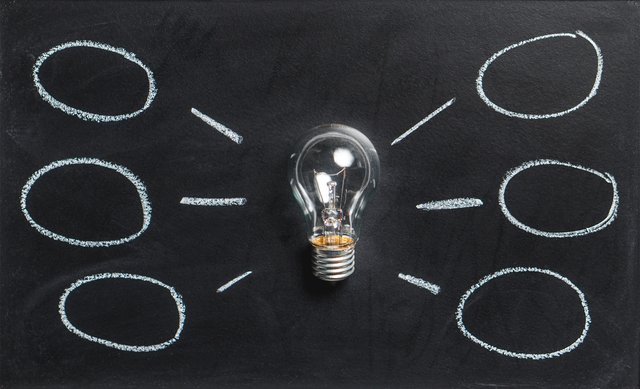Blockchain, Cryptocurrencies and more
I tried to translate an interview with me from March into English. Please excuse me if I did not succeed perfectly.

When did you become aware of the topic of blockchain and cryptocurrencies?
Relatively late. I became involved with Bitcoin and blockchain at the end of 2010. The basic idea of a digital currency was not new at that time, but I found the use of a blockchain very interesting.
What do you think are the most important advantages of blockchain and cryptocurrencies?
In my view, blockchain and cryptocurrencies should not be mixed. Blockchain is a technology (or a protocol) and cryptocurrencies are an application of blockchain.
People do business with each other when they trust each other. If they don't trust each other, you need a trustworthy third party. Blockchain provides a tamper-proof protocol for recording and sharing information without the service of a third party. To make it easier to understand, we can replace the word "protocol" with "ledger" or "database". This protocol or ledger is maintained decentrally in a peer-to-peer network. This means that with blockchain we are not dependent on a single third party, which results in improved safety, resilience and availability. I could talk about the benefits for hours. So I would like to end my thoughts on blockchain with a few buzzwords: trust, decentralized, security, empowerment, common rules, transactions, peer-to-peer.
I find cryptocurrencies exciting, because the control over my "money" is handed over to me. I'm my own bank. Cryptocurrencies are becoming interesting in countries where people do not have easy access to the financial system. Does the average Swiss citizen depend on cryptocurrencies as long as he can interact with the online banking of the bank of his trust around the clock? Wait a minute. There the word was again: "trust".
Finally, on cryptocurrencies, there are infinite applications where you are not able to list all the advantages.

What do you see as the biggest challenges in terms of blockchain technology?
A challenge is the size of a blockchain. The blockchain size of Bitcoin is currently approx. 190 GB, that of Ethereum approx. 360 GB (at the time of the interview: end of March 2018). The advantage of a blockchain, recording each transaction and storing it decentrally, can reach its limits due to the increasing amount of data.
On the other hand, a development towards centralization is a challenge, as the blockchain technology is intended to solve exactly this problem. Centralization is not always bad, because centralized systems are theoretically faster and scale better. We see the way to centralize blockchain technology particularly with crypto-exchanges and in Bitcoin mining. Is it the idea of a cryptocurrency to keep it in a central place (the exchange)? Can one still speak of a decentralized network with Bitcoin, if 3-5 mining pools have 51% of the total hash power?
These problems are currently being faced. I am convinced that decentralized crypto-exchanges will establish themselves. And there are countless approaches to bring transaction speed, scaling and security into harmony. Bitcoin calls it "Lightning Network", Ethereum calls it "Sharding". Or projects that want to further develop the blockchain technology, such as IOTA with the Tangle (Distributed Ledger based on a directed acyclic graph).
We are still at the very beginning.
What do you see as the biggest challenges in relation to the projects in the crypto world?
The crucial question is: Does a project really solve a problem? If a project solves a real problem, then "convenience" is the next challenge. A great solution must also be simple and used by many people so that it can become established. Especially the countless wallets are currently not really user friendly. Here, providers will scoring points that can manage different coins and tokens in a single application as easily as possible. It becomes interesting here, if a larger bank occupies this topic and approaches it in the right way.
It is currently difficult to keep track of the large number of projects. Which projects pursue a long-term goal, which ones follow their roadmap, which ones really implement their ideas? And which projects use the hype and simply want to make the fast money.
Many from the industry preach that it always depends on the team behind a project. The statement is as true as it is nonsense. How should the team be judged when you are new to the industry? Which references can be relied on? And if someone has already led a project to success, why should he succeed again?
Which crypto projects do you find personally interesting?
I personally am a fan of IOTA. I also actively follow the projects Ethereum, Stellar Lumen, Dash and Monero. Now, of course, you can say that I simply focus on the largest cryptos in terms of market capitalization. Of course there are many more projects I have on the radar. But with the projects mentioned by name I allow myself to say that they (1.) want to solve a problem, (2.) have gained some experience and (3.) can tackle other problems than new market participants.
Are there projects you dislike?
Yes, there are many of them. However, I do not want to defame any individual projects here. Basically, I don't think much of projects that in my view have a bad team, don't want to solve a problem and it's all about fast money.
Where are you invested? Bitcoin was missing in the list of your top five? (Here my willingness to talk was not really there. Nevertheless, the interviewer was able to elicit an answer from me.)
You can assume that in the nominated "Top Five" plus Bitcoin I have the highest equivalent in Fiat currencies. About 20% I hold in 15-20 more coins and tokens. These range from Cardano to Waves to Power Ledger.
Why did you create the "Akito" network?
After the hype about blockchain and cryptocurrencies, it is now time to develop real-world applications. Projects must now keep their promises and be used in the real world. Anyone can help here. You do not necessarily have to be a programmer or cryptographer. It is enough to share the basic knowledge about blockchain in his own branch and to verify application possibilities. This is exactly what "Akito" is supposed to achieve. We want to connect people from different industries and do research together on real-world applications.
Our network is a rather "motley bunch". The core competencies of the individual experts could not be more different. This doesn't make "Akito" look really serious?
And exactly this "motley bunch" seems to me to be ideal for this. Even if we are at home in different industries and have different core competencies. Everyone and the network can benefit from this. We want to consider different perspectives, needs and challenges.
In addition, all industries have one thing in common: customers and trust. Our products and services must have a purpose or address a need. A product that is not used does not make much sense. And without trust we can not do business with each other.
Unfortunately, we do not yet cover all areas and industries. But this can still become.
Where can "Akito" contribute?
Only if we deal with the topic of blockchain and share our knowledge and experience do we make a small contribution. As already mentioned, it is now about real-world applications. If we can support the "blockchain community" here - let's call it that - that would be remarkable.
Will there be an Akito token soon?
Currently I see no reason to create my own token. There are enough projects and approaches to explore.
Are you Satoshi Nakamoto?
No. Not every Japanese who owns a Bitcoin is automatically Satoshi Nakamoto.
Who do you think Satoshi Nakamoto is or was?
Personally, I believe Hal Finney was the real Satoshi Nakamoto.
Was Bitcoin invented by the NSA?
Sounds like a wild conspiracy theory. SHA-256 (Secure Hash Algorithm) was developed by the National Security Agency in 2001. And Bitcoin uses SHA-256 for its proof of work.
Wow, you really read all the way up here!
Thank you for your interest. Let's discuss these topics. What's your opinion? What are your thoughts on blockchain and cryptocurrencies? How long have you been in crypto space? What experience have you gained?

Dō itashimashite
亜
希
斗
Hi, thank you for contributing to Steemit!
I upvoted and followed you; follow back and we can help each other succeed :)
P.S.: My Recent Post